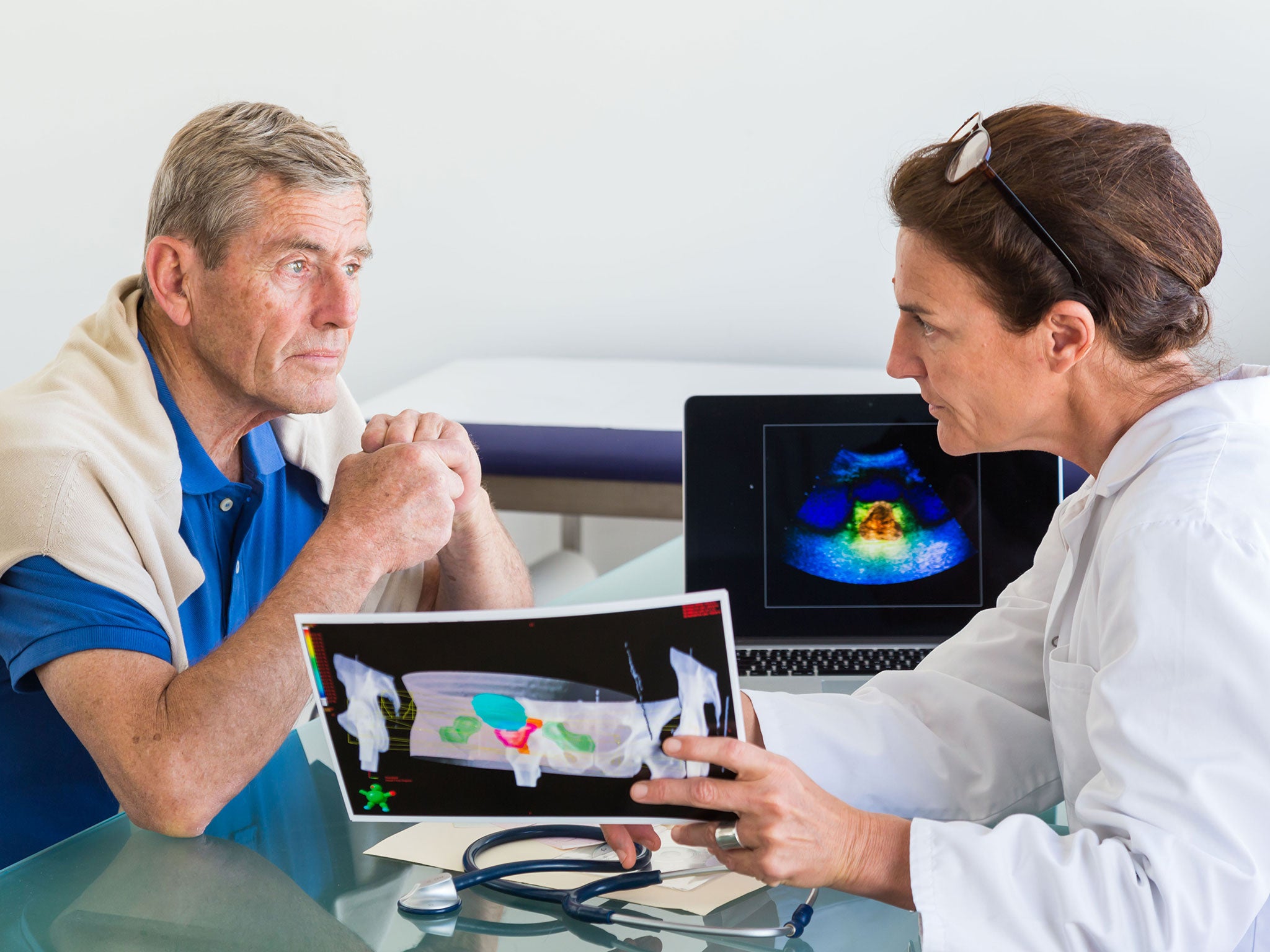Prostate cancer: New study examines how exercise affects survival rates
Depending on the outcome, exercise could be recommended as a form of treatment on the NHS

Your support helps us to tell the story
From reproductive rights to climate change to Big Tech, The Independent is on the ground when the story is developing. Whether it's investigating the financials of Elon Musk's pro-Trump PAC or producing our latest documentary, 'The A Word', which shines a light on the American women fighting for reproductive rights, we know how important it is to parse out the facts from the messaging.
At such a critical moment in US history, we need reporters on the ground. Your donation allows us to keep sending journalists to speak to both sides of the story.
The Independent is trusted by Americans across the entire political spectrum. And unlike many other quality news outlets, we choose not to lock Americans out of our reporting and analysis with paywalls. We believe quality journalism should be available to everyone, paid for by those who can afford it.
Your support makes all the difference.It is the time of the year when no one can escape the traditional slew of diet and healthy lifestyle advice.
Now any man seeking to shed the Christmas pounds may have an extra reason to get on that treadmill as a new study will examine how exercise affects prostate cancer survival.
A group of men already suffering from the illness will undergo weekly aerobic sessions by researchers to explore the possible health benefits. Backed by Cancer Research UK, it is hoped the year-long study will lead to a full trial, thought to be the first of its kind.
Depending on the outcome, exercise could be recommended as a form of treatment on the NHS.
Previous evidence has suggested that exercise can improve survival chances for those diagnosed with the disease, the most common form of cancer among men – in the UK about one in eight men will get prostate cancer at some point in their lives.
Older men, men with a family history of prostate cancer and Black men are more at risk. Some 43,400 cases are diagnosed each year, claiming around 10,800 lives.
High levels of PSA, a protein produced by prostate cells, in the bloodstream can be a sign of cancer. Pain while urinating is a common sign that the cancer has developed.
Volunteer David Curtis, 68, was diagnosed with the illness last March and is counting increased exercise as one of his New Year’s resolutions.
He said: “I was never someone to go to the gym, even though I’ve always been active, but now I go to the gym twice a week and do lots of walking. Since starting on the study, I’ve started to lose weight and my PSA level has come down which is a really positive indicator.
“I feel privileged to be on the study and pleased to be part of any research which might be useful to others.”
Current forms of treatment for prostate cancer include surgery and radiotherapy, both of which carry risks and side-effects.
Study leader Dr Liam Bourk said: “Evidence suggests that men who are physically active after a prostate cancer diagnosis have better cancer survival than men who aren't active. It’s not clear yet how this works, but it might be that exercise affects the way some genes regulate cancer cell growth and DNA repair.”
Simon Grieveson, Head of Research Funding at Prostate Cancer UK said: “We know that a healthy lifestyle can improve outcomes for men living with prostate cancer, with previous research showing that physical exercise can reduce disease progression in some men. However we also know that many men are likely to reduce their physical activity following a prostate cancer diagnosis, and often don’t receive guidance on the benefits of exercise from their health professional.
“We hope that studies like this can help develop a clearer understanding of how and why physical activity benefits men with prostate cancer, as well as how best to motivate and support them to maintain a healthy lifestyle during and after treatment.”
Join our commenting forum
Join thought-provoking conversations, follow other Independent readers and see their replies
Comments